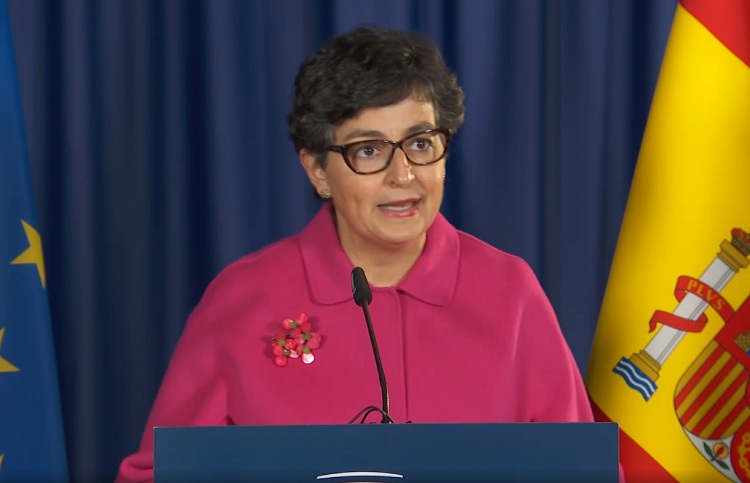The Diplomat
The European Parliament has approved the use of the urgency procedure for the parliamentary processing of the new digital green certificate with a view to its adoption before the summer.
“Good news, the European Union vaccination certificate will be processed in the European Parliament through the urgency procedure”, said yesterday the Minister of Foreign Affairs, Arancha González Laya, through her Twitter account after announcing the result of the vote, which was held this past Wednesday and was 468 votes in favor, 203 against and 16 abstentions.
The proposal had been presented by the chairman of the Freedoms Committee, former Spanish Justice Minister Juan Fernando Lopez Aguilar (S&D), who defended the need for the digital green certificate “to regain confidence in the Schengen area while the fight against COVID-19 continues”. “The certificate may not be a requirement for freedom of movement, given that this is a fundamental right in the EU, and cannot entail discrimination of people who do not have it”, he continued. “Only essential personal data should be collected and their protection must be guaranteed”, he added. During the debate, the vast majority of MEPs expressed their support for the creation of this instrument.
On March 17, the European Commission presented a proposal for a regulation on the creation of a green digital certificate to facilitate secure freedom of movement within the EU during the COVID-19 pandemic. The new health passport will encompass three types of certificates: vaccination certificates, test certificates (RT-PCR tests or rapid antigen tests) and certificates for persons who have recovered from COVID-19. The aim of this triple certificate is to “avoid discrimination against people who are not vaccinated” and to allow “all citizens, vaccinated and unvaccinated” to “benefit from a green digital certificate when traveling in the EU”.
This point could help overcome some of the reluctance shown by the countries most reluctant to the certificate. The idea of the certificate, initially proposed by Greece and supported by the southern European countries most dependent on tourism, such as Spain, Italy, Malta, Cyprus and Portugal, has generated little enthusiasm in countries such as France, Germany, Belgium, the Netherlands and Luxembourg, which have expressed their fear that the certificate would discriminate against people who have not been vaccinated. The Spanish government has expressed its “firm support” for the certificate and the President of the Government, Pedro Sánchez, yesterday asked the rest of the EU leaders, during the telematic meeting of the European Council, to speed up the procedures so that it can come into operation next June.
Thanks to the urgent procedure, the European Parliament will be able to give the green light to the mandate for the negotiations with the ministers of the 27 (EU Council) in the next plenary session from 26 to 29 April. Once the mandate, which may include amendments to the Commission proposal, has been adopted, the text will return to the Civil Liberties Committee, which is responsible for the dossier, to start talks with the Council. The outcome of the negotiation between the co-legislators will have to be confirmed by both the Parliament and the Council.







